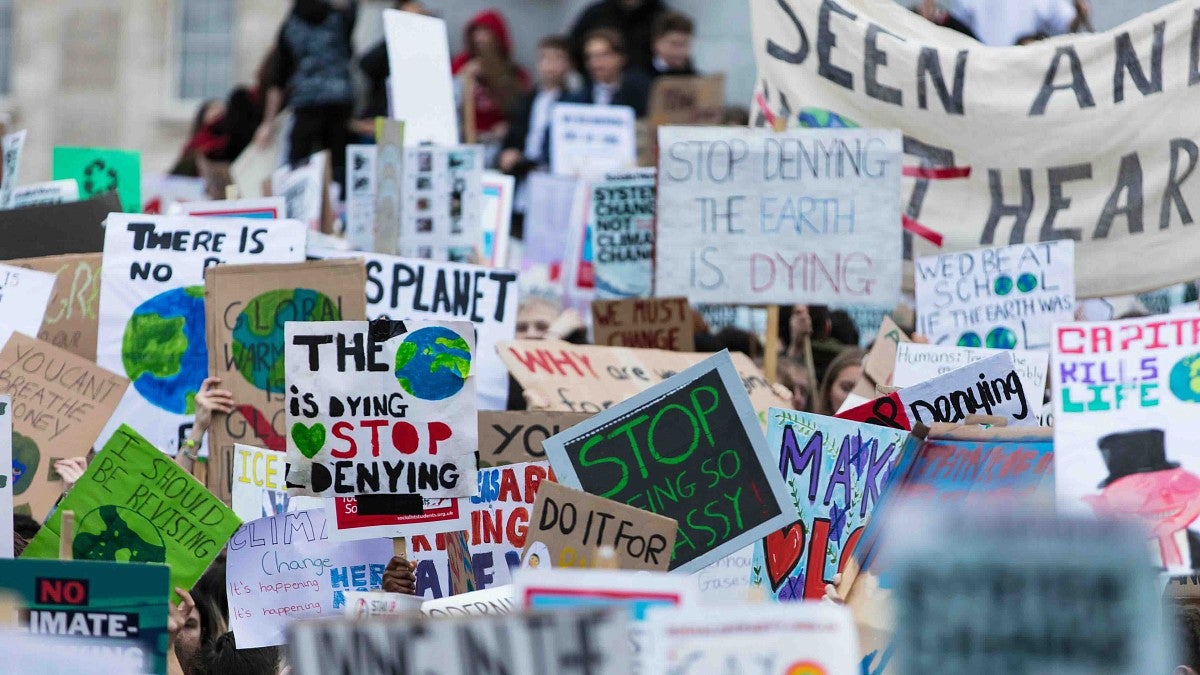
Oct. 15, 2024 - 9:00am
With several natural disasters worldwide impacting communities, there has been an increasing amount of discussion surrounding climate change, and how it can be addressed. In a time of uncertainty surrounding disaster preparedness, the University of Oregon is broadening the scope of academic study about climate change.
The University of Oregon’s School of Global Studies and Languages is hosting a conference on climate change Oct. 17-19. The climate conference is taking an interdisciplinary approach to discussions by reflecting on the multifaceted issues related to climate change—affecting health, environment, economy, governance, and many other issues on a local and global level. Explore the schedule.
“When we think of climate change, every study tends to focus on a single dimension—whether it’s science, economics, or sociology—because of the nature of research,” said Aneesh Aneesh, executive director of the School of Global Studies and Languages. “Our goal is to bring together all these varied understandings of climate change.”
One organizer, Matthias Vogel, gave an insight into some of the topics that will be discussed. One speaker is talking about the risks of gender-blind climate security action, another is looking at the potential risks of pursuing carbon neutrality on indigenous rights and safety, while a third is looking at climate clashes as intergenerational conflicts.
The speakers, academics from within and outside the UO, will be organized into seven panels split over the three days of the conference. The panels will cover a variety of topics, allowing for a discussion of different perspectives. Aneesh said he hopes that the conference will open doors for collaborations in research and broaden academics’ scope of research surrounding climate change.
“When you bring people together, there is a kind of synergy,” Aneesh said. “A lot of things happen in informal conversations at conferences. People develop new collaborations.”
One of the goals of the conference for the organizers is that it will stray from the typical discourse surrounding climate change, a primary focus on scientific research. While important, the effect of climate change on humans and its conflicts is also necessary to understand.
“If you turn on or listen to some regular cable channel news it seems they’re all repeating, reviewing, and litigating the same issues with similar approaches and this is all repeating in hourly resets,” Vogel said. “Where does it lead us? Nowhere.”
Instead, the conference will focus on the human aspects of climate change, which are often forgotten in conversation. Aneesh said he hopes this will address the “social reality” of climate change that is under-utilized compared to the “natural reality.”
The conference will also incorporate perspectives from undergraduate students, community members of Eugene, and other varied audience members. These presentations differ from the typical conference that may focus only on academia.
“We want student participation,” Aneesh said. “We want the conference to be not just a research conversation and disciplinary talks, but we want between them. We want between the speakers and the audience.”
The conference will be held at Gerlinger Lounge Thursday, Oct. 17 and in Global Scholars Hall Oct. 18 and 19. The conference will differ from the usual singularly focused approach to climate change and will instead take into account multiple aspects of climate change and its effects.
“This is where the sum of the parts can really be more than the individuals or individual disciplines because we hope that it will give a much broader and multi-faceted representation of the effects of climate change, the effects of the conflicts of climate change, and then we will also have an outlook to the future,” Vogel said.
—By Grace Connolly, College of Arts and Sciences
